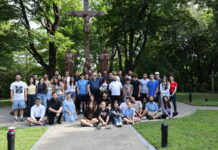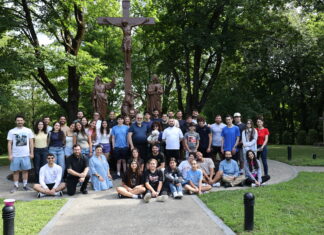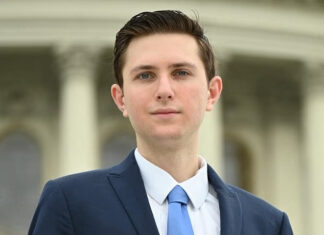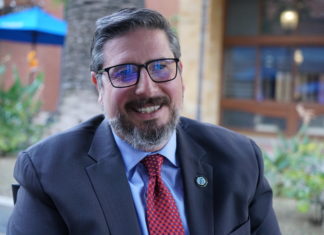CHICAGO — Archbishop Khajag Barsamian struck a personal chord during his remarks to the delegates of the 108th Diocesan Assembly on Friday, April 30.
Through his annual address, the Primate of the Diocese of the Armenian Church of America (Eastern) launched the second year of
“Vocations: The Call to Serve” — a Diocesan-wide project to invigorate recruitment to the clerical vocations of the Armenian Church.
But while increasing the number of priests would have a clear benefit to the church as an organization, Barsamian focused on the benefit that comes to the individual when he chooses to answer the calling and enter the clergy.
“What does the ‘call to serve’ mean to them — to our priests and pastors, our deacons and seminarians? What is its meaning for their lives?” he asked.
His answer came in a single statement.
“Priesthood is a deeply fulfilling life,” the Primate said.







